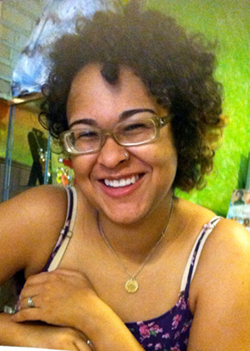 Chelsey received $550 from FFRF for her essay.
Chelsey received $550 from FFRF for her essay.
Typically, or perhaps stereotypically, a lack or loss of belief in a god is assumed to be the product of a traumatic experience, a sort of temporary act of rebellion against God, a phase that will be completed once life returns to stasis, or if, in the healing process, the person feels ill-equipped to deal with circumstances on their own and must turn to a higher power for guidance.
All of the components of this narrative are present in my own story: I stopped believing in God shortly after my father was murdered in his hotel room in the U.S. Virgin Islands in 2006 when I was 13. But my motivations for this shift were complex and multifaceted, and for that reason, I chose not to “come out” as an atheist for quite some time. I didn’t want my fledgling atheism to be chalked up to some sort of pitiable outlet for my grief.
Even so, looking back, it is difficult for me to pinpoint why exactly I stopped believing in God. It wasn’t that I was “angry with God,” as many well-intentioned yet misguided friends and relatives suggested after I did become more open about my atheism. It wasn’t that I couldn’t believe in an omnipotent being who would allow my father, whom I loved most in the world, to be taken from me in such a violent, sudden manner.
If anything, my atheism was caused by the inverse of this thinking: Why had I believed, before my father’s death, that we would be protected from such tragedy because we were basically “good people”? Why had I felt that my family didn’t “deserve” for this to happen? Didn’t that imply that some other family did?
Why had I and my family, in the early days following my dad’s death, clung to the belief that God was sticking with us through this hardship, when very little was said of God during the good times?
Perhaps most disturbing to me were the oft-repeated lines of predestination and “God’s plan,” i.e., that “God doesn’t give us anything we can’t handle” and “It was his time to go” and “Everything happens for a reason.”
I realize that to some people, these lines can be comforting, whether in their familiarity or in their surrender of power and responsibility in difficult times to a higher being. I also realize that it is difficult to find adequate words to say to someone who has just lost someone important to them, that sometimes all that comes to mind are tired platitudes.
But back when I was first hearing those words right up to this moment, all I can hear in these statements is the implication that my father’s murder was merely a plot point in the story of the living, that the violence and prematurity of his death, and the rich relationships and successful career it permanently halted, were less tragic because it was, after all, what was supposed to happen.
I realize this argument smacks of one I claim to not agree with: “There can’t be a god who would let this terrible thing happen to me, so there is no God.” Maybe this is true for me, superficially, the God I was raised to believe in was, theoretically, not supposed to allow bad things to happen to good people. But, and this is the key, when he (always “he”) did, it was for the purpose of teaching the good people a lesson.
I refuse to believe that my father’s death was part of some divine plan to unlock life lessons for me, as it was so often implicitly and explicitly framed by others in the aftermath of his murder. I refuse to see it as anything less than a painful, life-altering tragedy.
When I applied this line of thinking to greater societal tragedies, such as poverty, rape culture, and racism, I realized that these social structures, like my father’s death, were human-created and sustained, that no higher being was monitoring these injustices and keeping those who benefited from them in check, whether in life or after death.
I realized that all of these circumstances and life events were products of random chance. Certainly, I would ask why — why us, why me, why my dad? But I also learned to ask why not us, or me, or him? Why did I think we were so much more exalted than any of the other 7 billion people on the planet?
We live in a world created by humans, and all of us are equally vulnerable to the conditions we co-create, both negative and positive. My family’s number had simply come up, and we were forced to deal with the reality of the human condition of which we were a part.
God, I came to realize, had absolutely nothing to do with it.
Chelsey Shannon, 21, Cincinnati, is a senior at Kalamazoo College majoring in human development and social relations and women, gender and sexuality studies. She is interested in literature, feminism and food.

